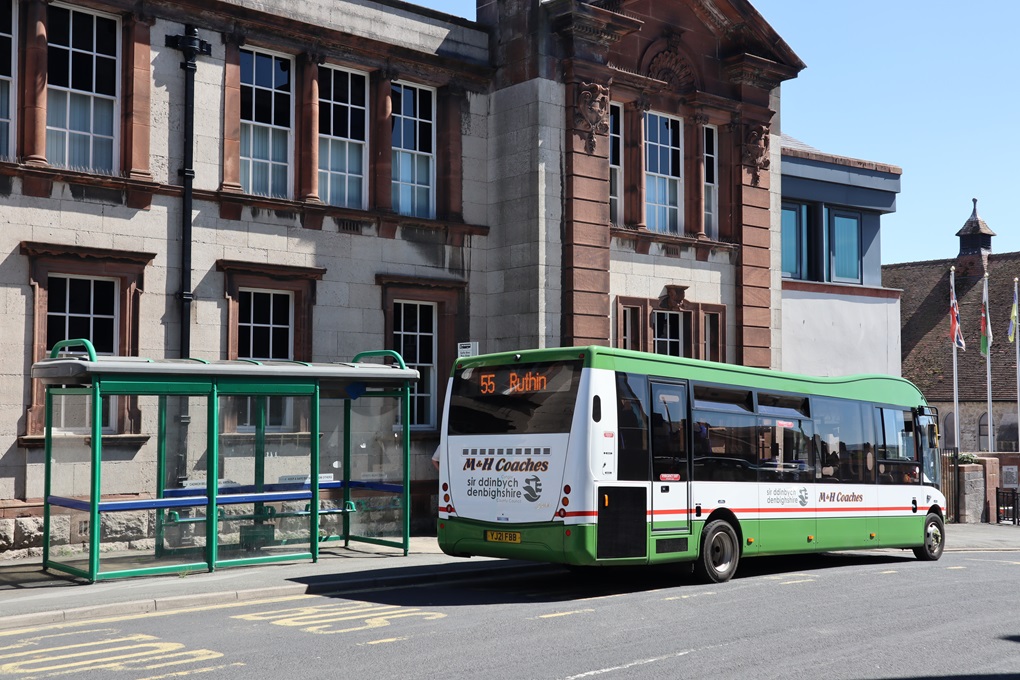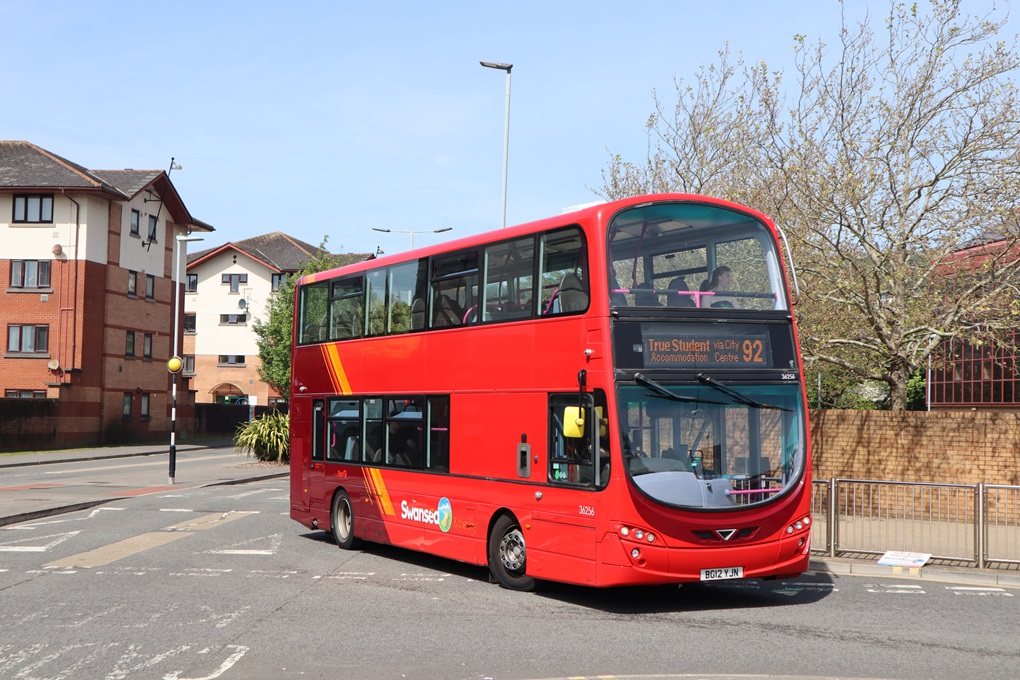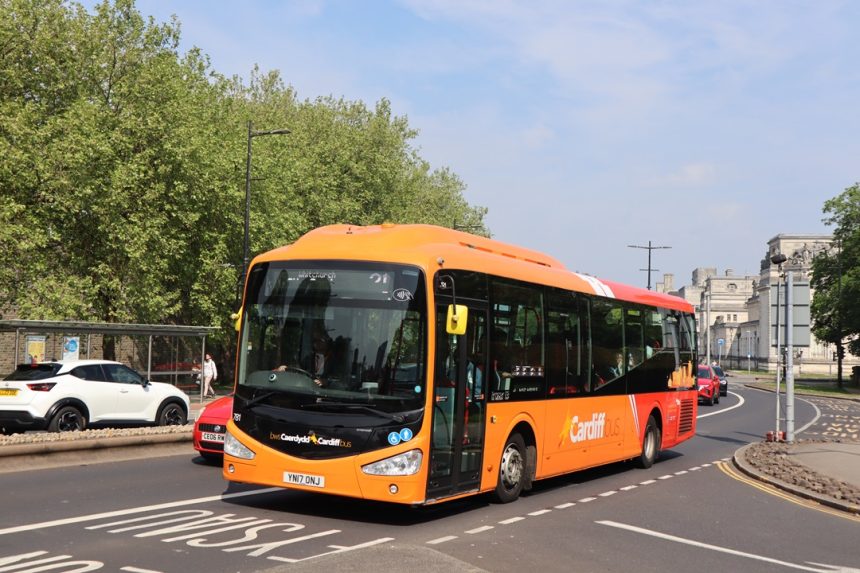The affordability and deliverability of bus franchising in Wales has been questioned by two trade bodies through scrutiny of the Bus Services (Wales) Bill, which enables such reform.
The Confederation of Passenger Transport (CPT) Cymru says that a Welsh Government assessment of franchising’s financial implications is “overly optimistic and based on weak assumptions and unrealistic forecasts.”
Meanwhile, the Coach and Bus Association Cymru (CaBAC) believes that some costings in the assessment have been underestimated and has highlighted worry among SME bus operators in Wales about the consequences of franchising for their businesses.
CaBAC Chair Scott Pearson and CPT Cymru Director Aaron Hill addressed the Senedd Climate Change, Environment and Infrastructure Committee on 15 May. They each used the opportunity to question the bill’s Regulatory Impact Assessment (RIA) and the explanatory memorandum, of which the RIA is part.
‘Serious concerns’ over bus franchising impact assessment
While it is agreed by both trade bodies that the bus industry in Wales needs change, Mr Hill says that the bill “does little to guarantee success” in that aspiration and that it “will fall well short of delivering the outcomes that have been promised.”
He told the Committee that the RIA fails to consider the recent uplift in employers’ National Insurance contributions, while Mr Pearson says that CaBAC has “some serious concerns” with the document.
In written evidence, CPT Cymru highlights the gap between costs and revenue under franchising in Greater Manchester. The explanatory memorandum “does not acknowledge this” while assuming fare revenue will rise to cover costs and enable cross-subsidy “with no recognition of the low proportion of existing bus services in Wales that are commercial.”
Also alleged by CPT is how in comparing options for bus service reform, the explanatory memorandum suggests that improvements to travel times, bus priority and fleets and depots cannot be delivered under the current regime.
CaBAC believes that some costings within the RIA “appear to be underestimated” and that some important factors are absent. It wants a rerun of calculations “to give a true and proper cost of franchising” so that Senedd members “can accurately and confidently make decisions about the bus industry in Wales.”

Congestion: Stronger action urgently needed
Closely aligned to the need to drive patronage growth on a franchised network under financial modelling is reducing how congestion impacts buses, Mr Hill and Mr Pearson agree. Both are critical of a lack of plans via franchising to do that. Mr Pearson calls congestion “the main problem” for bus operators in Wales.
In CaBAC’s written submission, he says that while reform of bus service delivery in the country “is a once in a lifetime opportunity” for change, the major component of patronage stagnation – congestion – “is not being tackled.”
CPT Cymru and Mr Hill agree. In its written submission, the Confederation says that the Bill should impose duties on ministers in Wales to create a national target for bus speeds and to act to improve them via infrastructure schemes and priority measures.
On the national insurance rise, Mr Hill believes it will have at least a £200 million impact across the life of the 30-year affordability assessment. CPT adds that some members in Wales believe other cost assumptions are underestimated, including drivers’ wages.
“Overall, we are concerned that the assessment of the financial implications [is] overly optimistic and based on weak assumptions and unrealistic forecasts, only serving to highlight the risk over affordability and deliverability of the proposed reforms,” Mr Hill’s written submission concludes.
In CaBAC’s written evidence, Mr Pearson notes how the national insurance uplift was well documented in the months prior to the RIA being completed. He is thus “unsure as to why this significant increase would not be included or at least referenced.”
Net-cost ‘would drive revenue growth’
The Welsh Government favours a gross-cost approach to franchising delivery, under which operators are paid a fixed fee. CPT advocates net-cost where they could propose changes to the network or use ticketing offers to drive patronage.
It cites Jersey as an example of where that has been successful, noting how since a change to net-cost franchising there, usage has grown by c.40% and customer satisfaction by c.20%.
“We believe that Welsh [local] authorities should be given flexibility to assess which model is most appropriate, and affordable, for their area,” CPT Cymru says in its written evidence. Gross-cost franchising “presents the biggest risk to the public purse and passengers,” it continues.
Mr Pearson notes a difficult landscape for public finances in Wales. “If we are trying to do the same as with current funding and adding a whole load of costs into it… is simply not going to work, because you cannot get more for less,” he says.
A week earlier, Cabinet Secretary for Transport and North Wales Ken Skates had told the Committee that the Welsh Government believe it can make savings with the model it is proposing. He claims that even if funding remains static, “we still get an increase in the proportion of people who are able to access public transport” via that approach.

SMEs ‘petrified’ by bus franchising in Wales
Diversity of the future operator landscape under bus franchising in Wales was also examined at the Committee scrutiny session.
Mr Pearson says that CaBAC’s SME members “are petrified” about the Buses Bill, notingh how the small bus operator landscape in Greater Manchester has been decimated under franchising. “The SME market [in Wales] is very concerned about the lack of detail,” he continues.
The former Newport Transport chief questions how onerous tendering requirements will impact the pool of bidders. If small operators must complete a long pre-qualification questionnaire, Mr Pearson believes that some will not bother and may instead exit bus services.
Also addressed by Mr Hill and Mr Pearson was the risk to Wales’s two municipal bus operators under franchising; the permit regime for cross-border routes; and how local bus services will sit alongside home-to-school provision in a regulated landscape. On the latter, CaBAC notes that many of its members operate both.
If home-to-school remains the responsibility of local authorities but local bus services fall under franchising – as is the current expectation under the bill – the Association warns that an operator’s failure to win any franchise contracts could have severe consequences on its ability to continue to deliver learner travel.
























